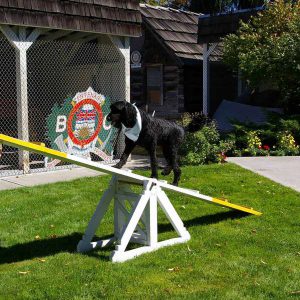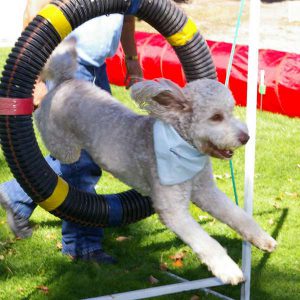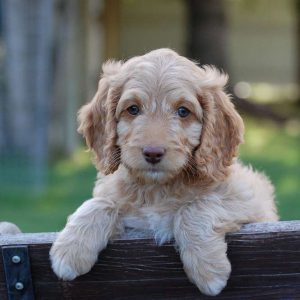Perfect Puppy Board&Train School
4 weeks – Bootcamp with Certified Professional Trainer $2500.00
Nisi&Lisi is the #1 referred force free Board&Train program in Western Canada. The primary service trusted by science based professional dog trainers to refer their clients for Quality, Safe and Effective training. The dogs who visit us are Loved like one of the family, treated with Respect and Trained daily using play, praise and food rewards.
Our puppy visitors are definitely spoiled with daily training sessions, on leash training walks and comfy relaxation & play time at home with our family. We work hard every day to give your puppy the basic skills they need to have an easy transition to life at home with you.
Dog training takes three things: time, experience and skill. If you don’t have the time to teach and practice new things or really just feel lost when it comes to training your new puppy, professional canine trainer, Nisi, and her loyal furry BFFs are here to take the reigns and put in the hard work.
All programs include detailed notes & videos for continued practice at home as well as an orientation to your puppy’s training upon pick up!
What your puppy learns at Puppy School
- Potty training
- Basic obedience training: Eye Contact, Sit, Down, Stay, Place, Touch, Leave It, Drop It
- Polite manners and greetings with new dogs and people
- Polite behaviour indoors: Mealtimes, Kitchen, Front Door Manners
- Loose leash walking training on the Left side
- Off-leash introduction and coming when called to Name or Clapping
- Crate training
- Handling for vet and groomer
- Full socialization program with humans, children, cats, dogs and poultry
- Experiences in new locations, sounds, surfaces, sights.

When your puppy returns home:
- One of the most important parts of having a young dog is making sure they are SAFE from things that can be traumatizing for the first year of life. To do this successfully: Socialize with only dogs you KNOW are friendly & gentle to avoid attacks (there is no need for your dog to “meet” every dog they see or play with puppies constantly – in fact, learning to ignore other dogs is just as important as meeting them), Watch your dog’s body language when meeting new people and DO not allow people/kids to invade your puppy’s space if he/she seems nervous (backing away, tail tucked, dropping head to avoid being touched). Your puppy needs to know that YOU are in control and advocating for him/her out in your daily life!
- Continue to practice the structure puppy has learned to maintain good habits – waiting at doorways before going out, laying on mat during meals, laying on mat when cooking, asking for obedience practice before rewarding with play, praise, food.
- Puppies will continue to need to be monitored and rules enforced until at least 1 year of age to avoid common puppy issues like: chewing furniture/shoes, jumping up, potty accidents, pulling on leash, ignoring directions.
- Dogs require that you continue to follow routines, provide enough exercise & mental stimulation and use obedience skills over their lifetime to maintain polite, confident behaviour. Practicing skills your pup knows, teaching new tricks, offering enrichment at home (snuffle mats, puzzle toys, chews & licking toys), going on regular walks and having a daily routine your dog can depend on will keep you on the right path.
- Make sure you are clear on all verbal cues, hand signals and the use of a reward marker “Yes!” BEFORE your puppy goes home to avoid: Bribery (showing food to get performance), repetition of commands, resorting to yelling instead of asking for a known behaviour.
- Review your puppy’s training videos or get in touch with your trainer right away if you have concerns or aren’t sure how to handle a situation.


Training Tip of the Month
February Training Tip:
If your puppy takes something forbidden in the home, don’t try to grab it from her mouth! Make sure to trade for a treat or toy. This avoids guarding behaviour in the future and encourages puppy to bring things to you instead of running away!
January Training Tip:
Look at puppy INSTEAD of things they are focused on in the environment. If you stare at the exciting thing, you’re showing your puppy that it is, in fact, something they need to react to. You always want puppy to focus on YOU not the things out and about so lead by example and look at puppy to encourage eye contact.
December Training Tip:
If your excited puppy starts walking a little too fast on leash, try turning around to walk the opposite direction and encourage pup to follow.
November Training Tip:
If your excited puppy starts walking a little too fast on leash, try turning around to walk the opposite direction and encourage pup to follow.
October Training Tip:
If puppy breaks a Stay during practice, you don’t need to say anything. Replace puppy back to original spot and try again but this time make it a little easier. Set your puppy up for success – not failure!
September Training Tip:
Never hold a treat in your hand when you’re asking for a behaviour. Always give your verbal or hand signal FIRST, then mark the correct behaviour with “Yes!”, and NEXT reach for your treat.
August Training Tip:
Don’t let strangers sabotage your training! Even if someone says it’s “Okay” for your puppy to jump up on them, it’s not good for you or the puppy. It’s your job to manage the puppy so that they aren’t rewarded for jumping up.
July Training Tip:
Don’t let every person you meet pat your puppy. We want adult dogs to ignore most people in their environment, so start that routine young! Follow the 10 to 1 rule. Of every 10 people you see, only greet 1.
June Training Tip:
Is your puppy enjoying being patted? Try a consent check. Take your hand away during pats, if your puppy moves back towards your hand or paws you for attention, continue pats. If she move away or stays still, stop pats!
May Training Tip:
If your puppy is particularly “bitey”: 1) make sure you aren’t playing handsy games with a puppy – always hold a toy when playing. 2) does puppy need a nap? Tired puppies are more bitey. 3) can you go outside? Bored puppies are less bitey when there are things to sniff. 4) do you have a licking focused toy to give? A Kong toy filled with peanut butter (no Xylitol) and frozen is a great licking treat for puppies.
April Training Tip:
Using pee pads indoors for potty training is confusing for your puppy. Encourage potty outdoors from day 1 to avoid accidents later into puppyhood.
March Training Tip:
Socializing doesn’t mean playing at the park! It means getting your puppy used to ever day life in your world. Get puppy out and about to see new things, hear new sounds and smell new smells. Bring kibble and throw some on the ground if puppy seems to be unsure or getting overwhelmed. Food will help puppy calm down and redirect attention!
